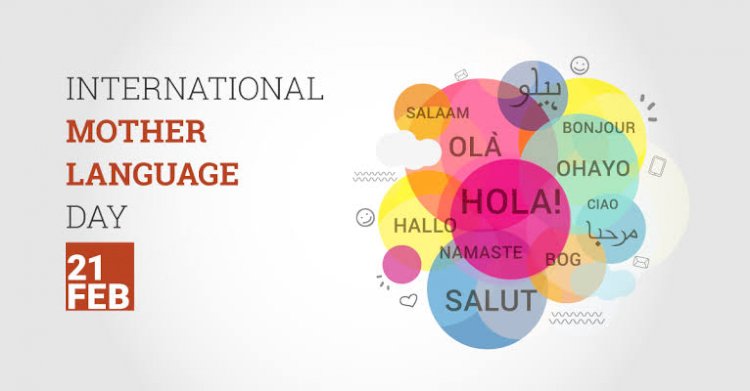Preserving Our Cultural Heritage: The Importance of Teaching Mother Language to Future Generations.

Language is a crucial aspect of our lives that defines our cultural identity and heritage. Every generation is shaped by the language they use, and the mother tongue is the foundation for communication and understanding. However, in recent times, the significance of mother language has been diminishing, and foreign languages are becoming more popular. This change is not necessarily a bad thing, but it can have serious implications for the preservation of our cultural identity.
The language may gradually disappear or become endangered. This is because language is a dynamic and living system that needs continuous use and transmission to survive. When parents stop using their mother tongue with their children, they break the chain of transmission and expose their children to a different language environment.
As parents and elders, it is our responsibility to teach the younger generation the importance of their mother language. However, many parents themselves don't interact with their children in their mother tongue or prefer to opt for foreign languages. The reasons for this shift are varied, ranging from the desire to provide better opportunities to their children to the perception that foreign languages are more prestigious. But, this has resulted in the gradual loss of language proficiency and an erosion of the cultural values associated with mother tongue.
It is vital to understand that preserving our mother language is not just about speaking it. Language is a medium that carries our culture, values, and traditions from one generation to the next. It is the key to our cultural identity and heritage. Therefore, if we neglect to preserve our mother language, we risk losing an essential part of our cultural heritage and our ability to communicate with the past.
One of the most important reasons for preserving our mother tongue is the role it plays in shaping our cognitive abilities. Research shows that learning a second language can have cognitive benefits, such as enhancing memory, improving decision-making skills, and boosting problem-solving abilities. However, learning a second language should not come at the cost of neglecting our mother language. It is crucial to strike a balance between learning foreign languages and preserving our cultural identity.
The preservation of our mother tongue is essential in the development of literature and other creative works. Literature is a reflection of a society's culture, traditions, and values, and it is often written in the mother tongue. If we lose our mother language, we risk losing an essential part of our creative heritage, which can have lasting implications for future generations.
Preserving our mother tongue is vital for the preservation of our cultural identity and heritage. Language is not just a means of communication, but it carries our culture, values, and traditions from one generation to the next. As parents and elders, we must take the responsibility to ensure that our children understand the significance of their mother tongue and its impact on their cognitive abilities, culture, and creative heritage. We must encourage them to learn foreign languages while also preserving their mother tongue, which will help them to be well-rounded individuals with a strong sense of their cultural identity.










